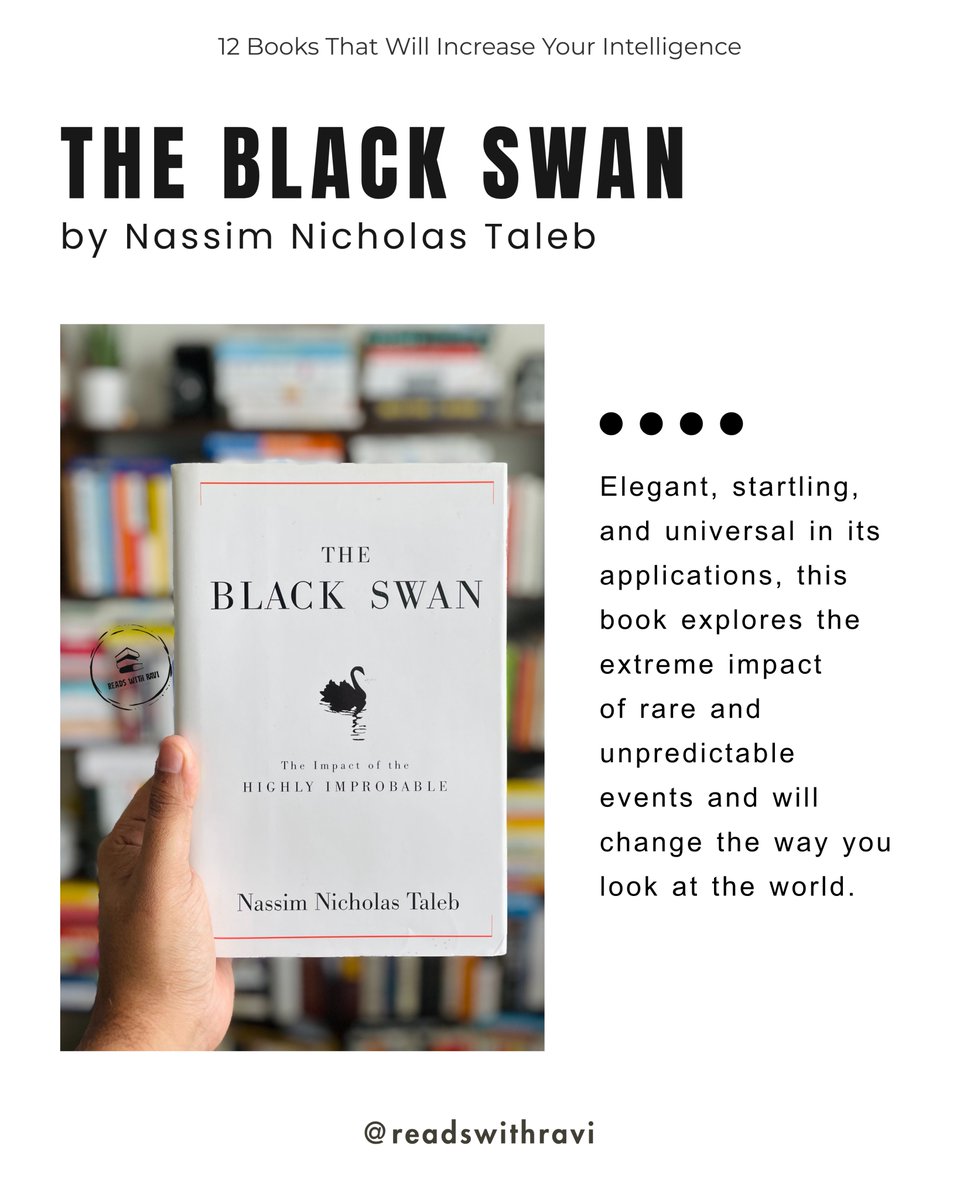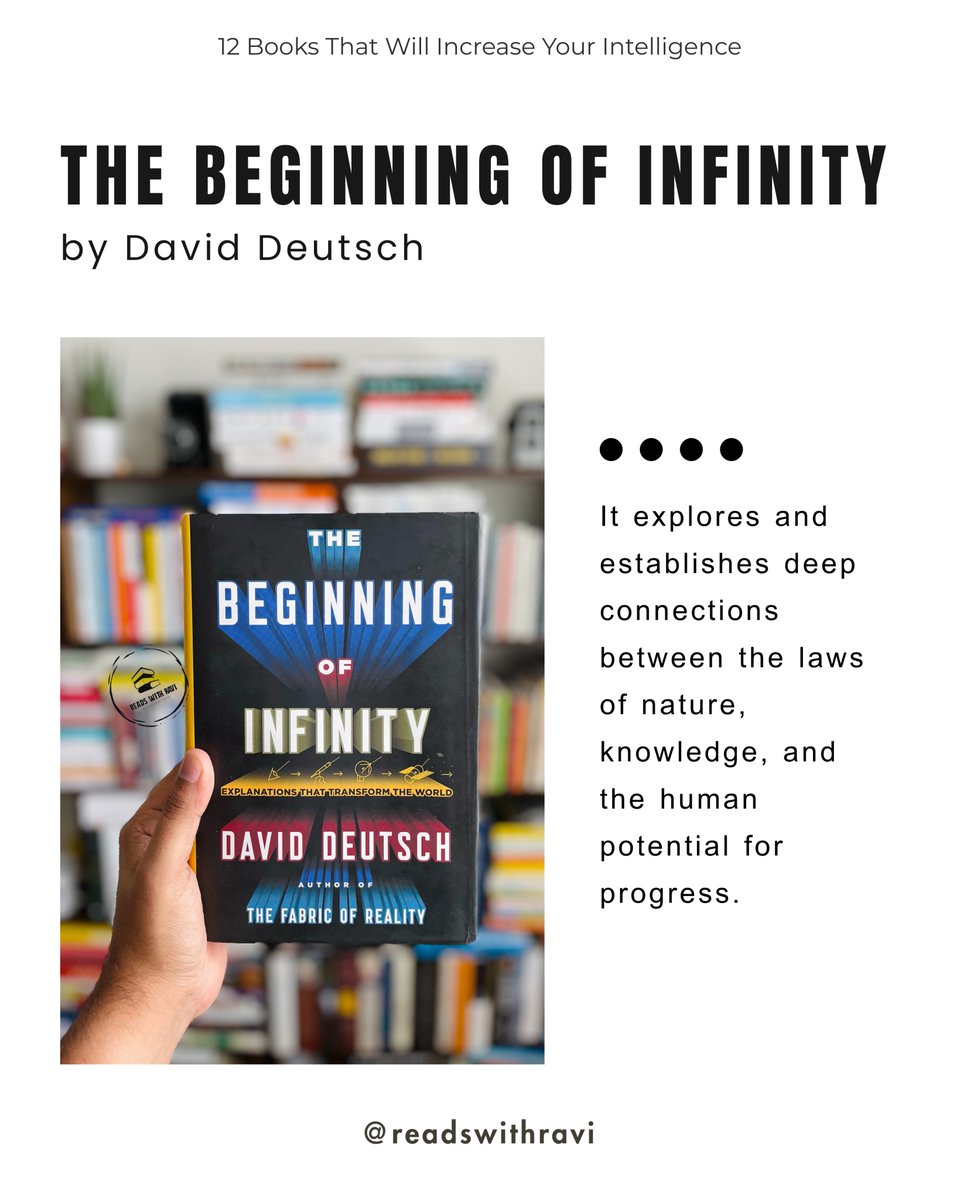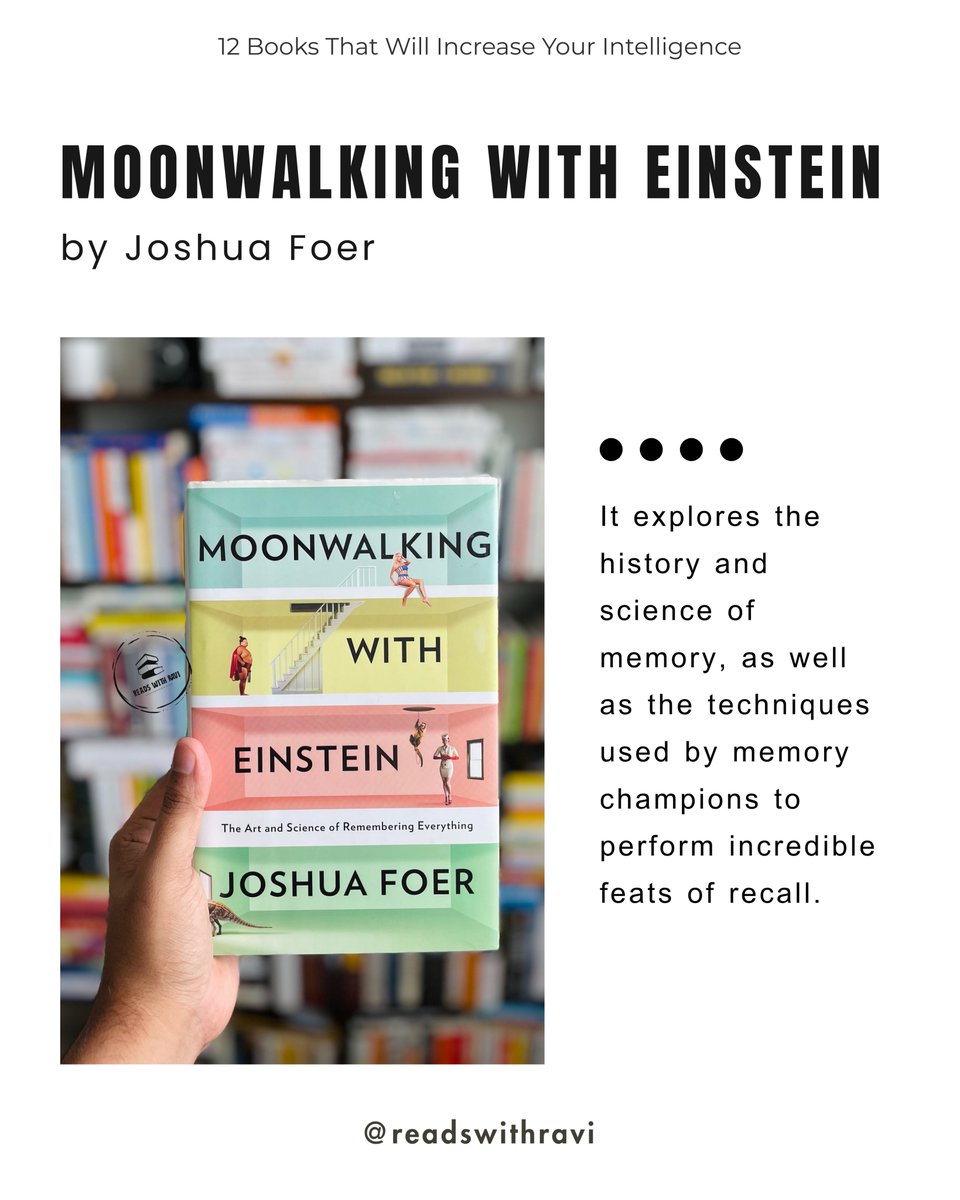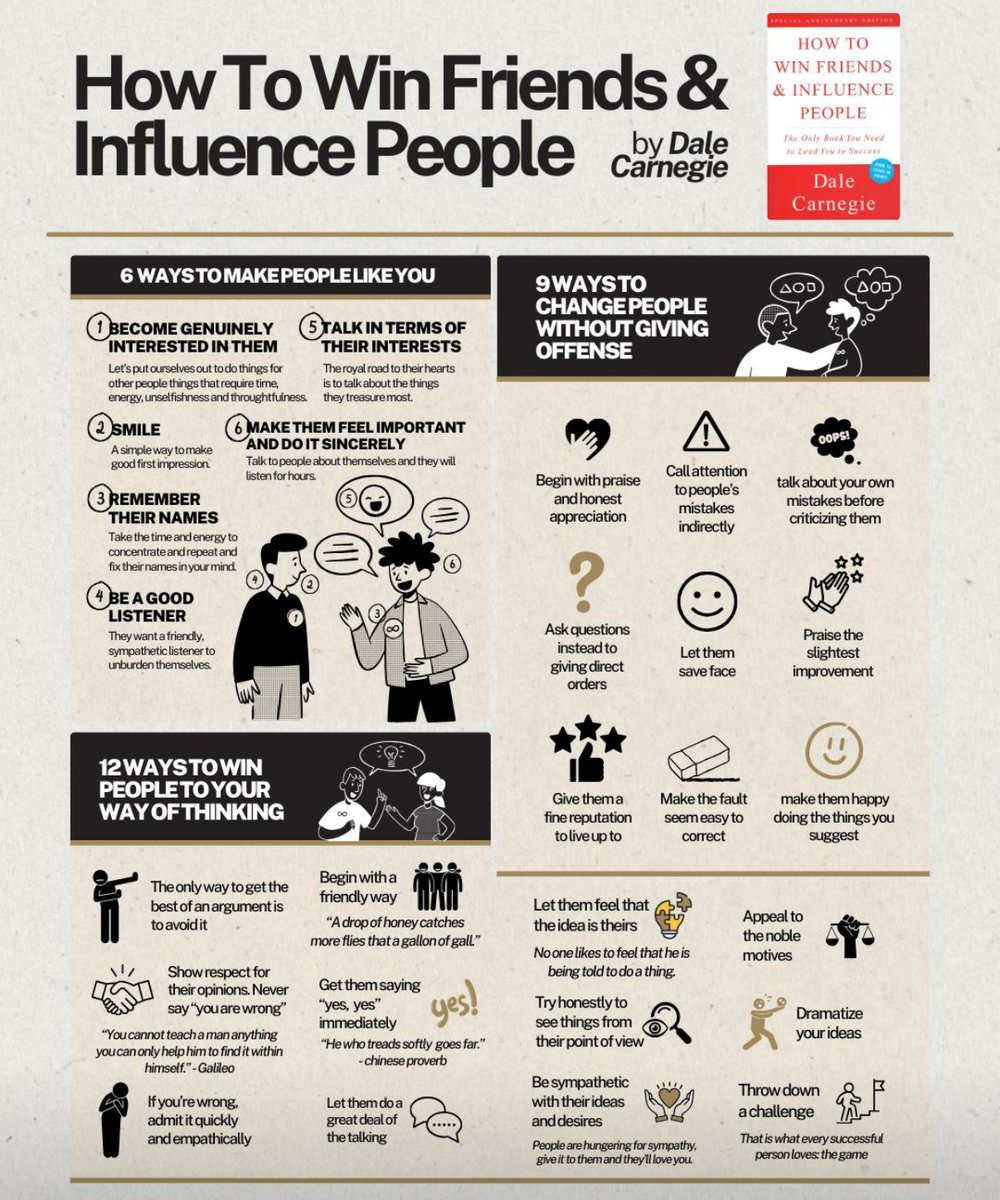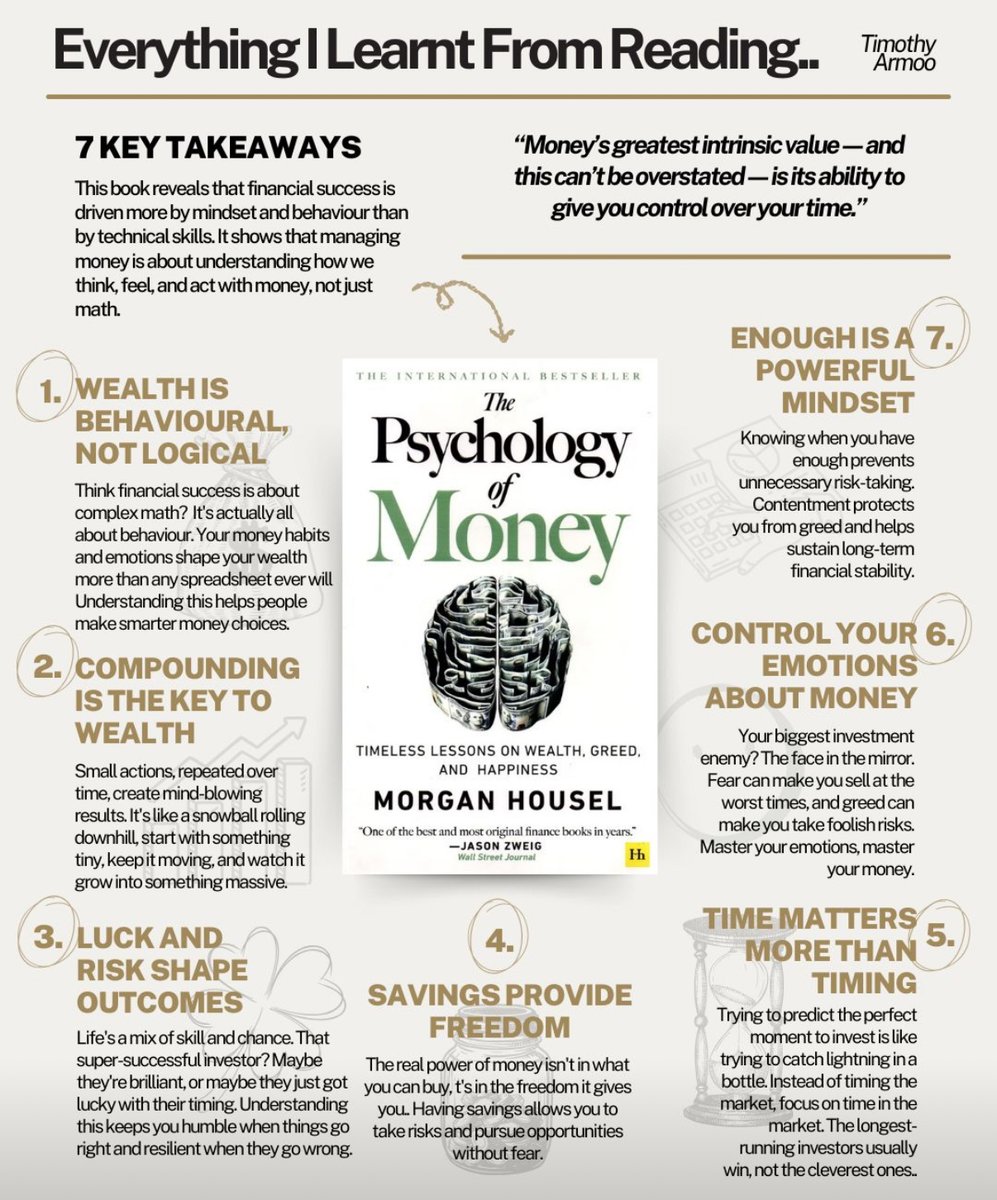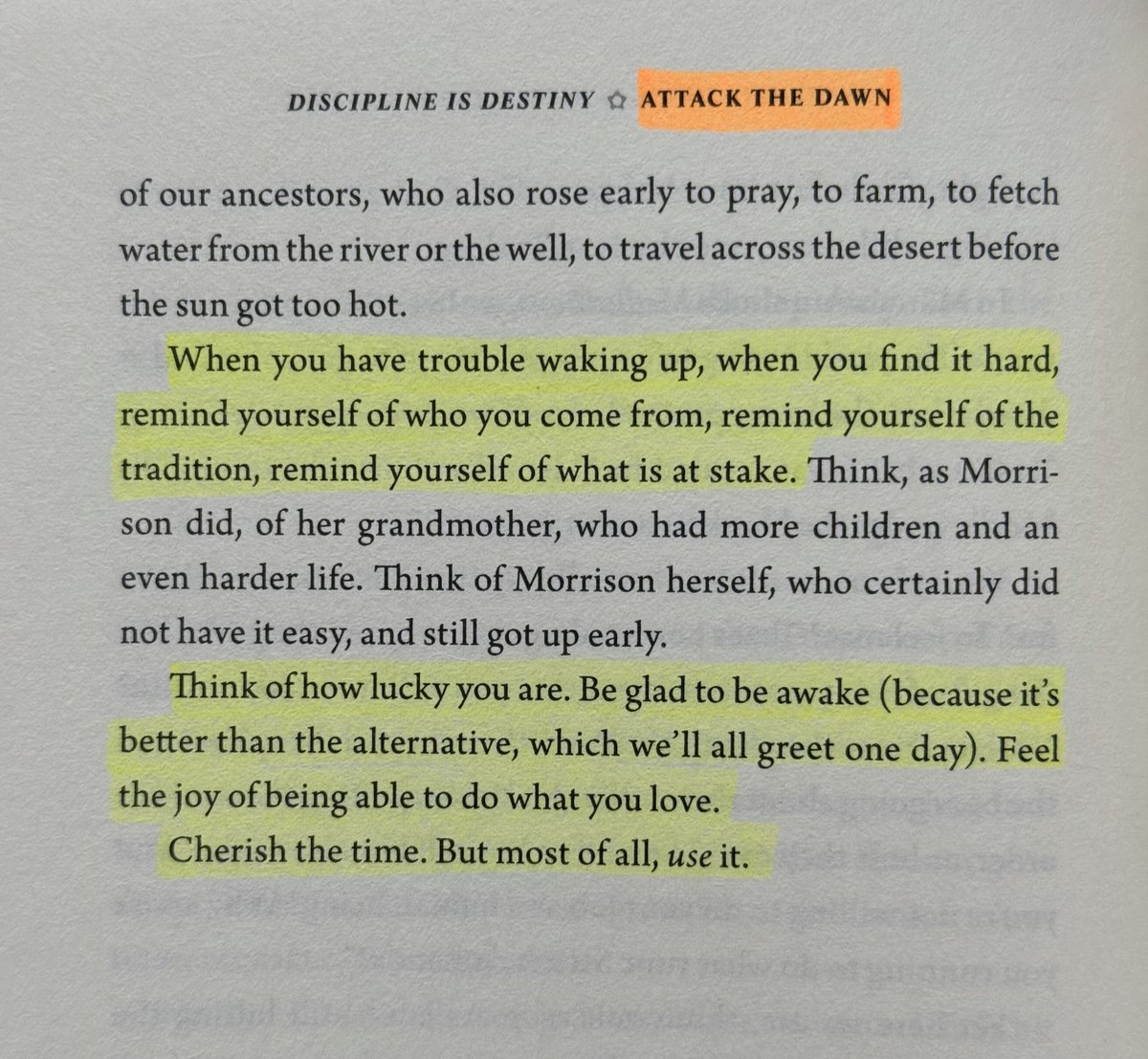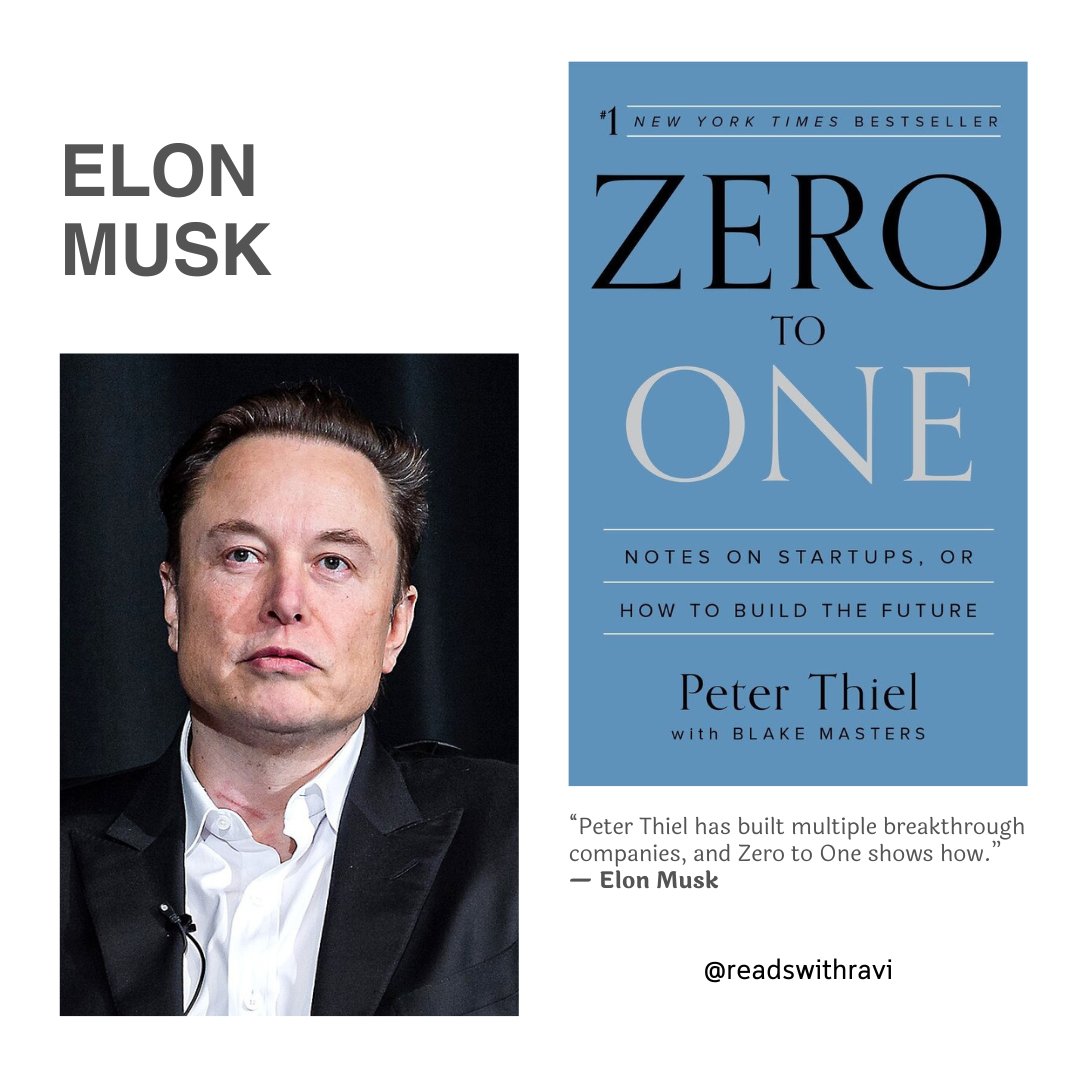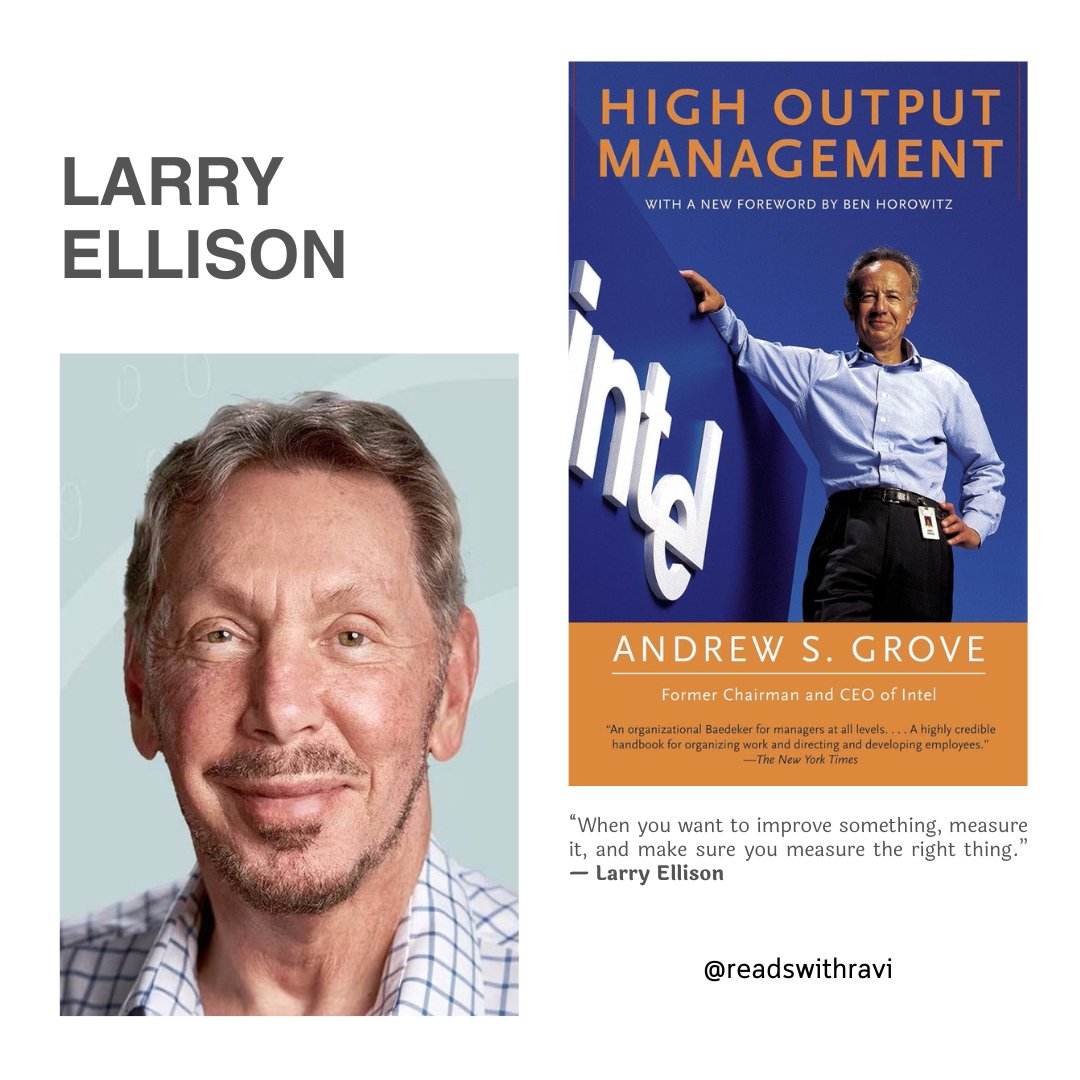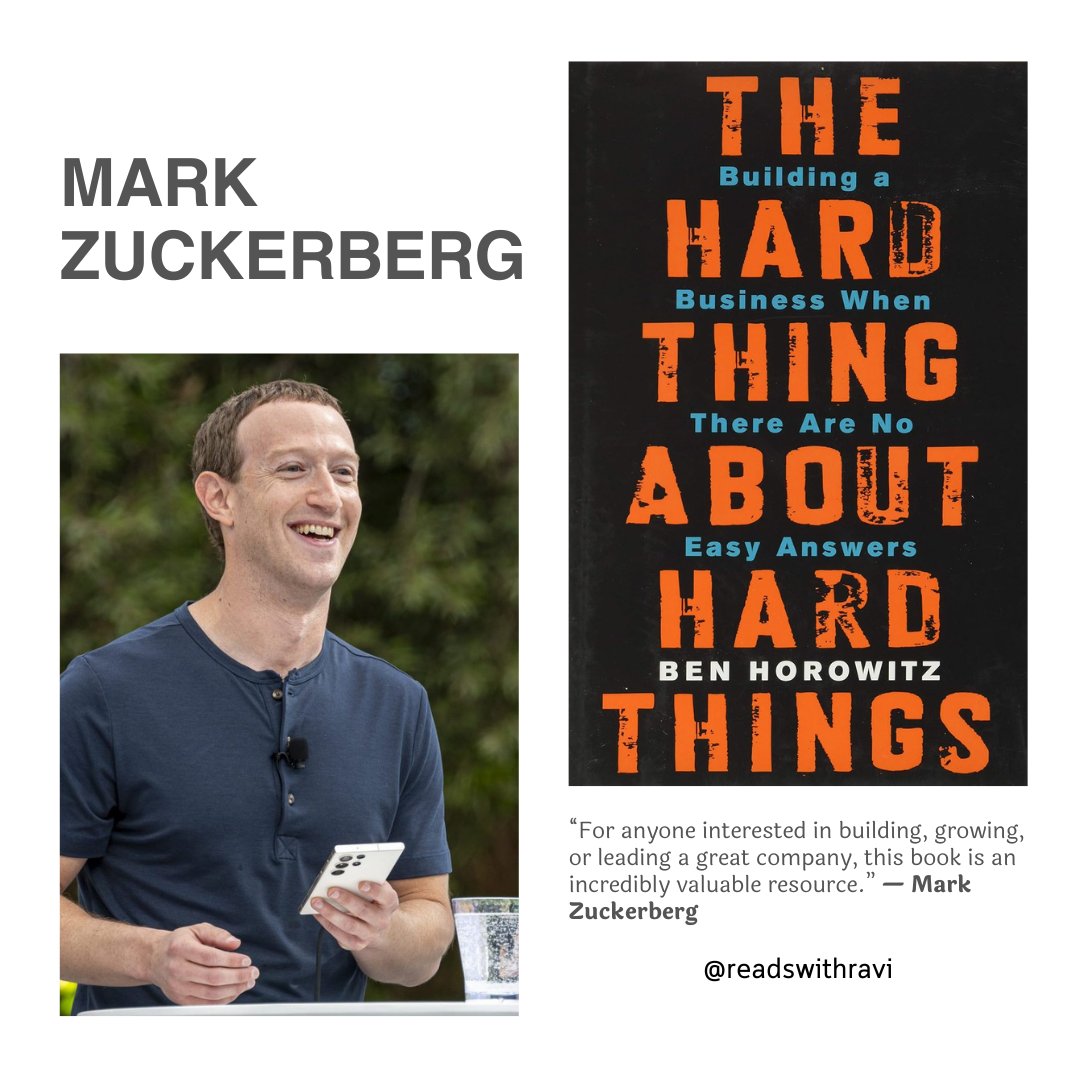“The newest technical papers and the oldest books are the best sources of arbitrage. They contain the least popular facts and the most monetizable truths”, says Balaji Srinivasan.
20 books recommended by @balajis 🧵
20 books recommended by @balajis 🧵

I escaped into an inner world of reading, flying through books. That was my life for many, many years.
I like the technical books. Most people’s favorite books seem to be fiction, or sometimes nonfiction. It’s extremely rare for somebody to mention a technical book. I’ve always been surprised by that.
I like the technical books. Most people’s favorite books seem to be fiction, or sometimes nonfiction. It’s extremely rare for somebody to mention a technical book. I’ve always been surprised by that.
1) The Feynman Lectures on Physics by Richard Feynman
Feynman was assertive and intellectual. Feynman showed you could be different, and you could break out of that stereotype as an academic. From him, I learned that seemingly simple questions often have very complicated answers.
Feynman was assertive and intellectual. Feynman showed you could be different, and you could break out of that stereotype as an academic. From him, I learned that seemingly simple questions often have very complicated answers.

2) The Princeton Companion to Mathematics by Timothy Gowers
If I were stuck on a desert island, this is the one book I would want because it’s basically all of math. You can keep going back to it, and you’ll always learn something. This is my number one book from a technical standpoint.
If I were stuck on a desert island, this is the one book I would want because it’s basically all of math. You can keep going back to it, and you’ll always learn something. This is my number one book from a technical standpoint.

3) One Thousand Exercises in Probability by Geoffrey Grimmett and David Stirzaker
This is evergreen. Learning how to do Markov chains and solve the eigenvalues will never, ever not be helpful. This stuff requires more energy to read, but it keeps you sharp.
This is evergreen. Learning how to do Markov chains and solve the eigenvalues will never, ever not be helpful. This stuff requires more energy to read, but it keeps you sharp.

4) The Man Who Knew Infinity: A Life of the Genius Ramanujan by Robert Kanigel
This moving and astonishing biography tells the improbable story of India-born Srinavasa Ramanujan Iyengar, self-taught mathematical prodigy.
This moving and astonishing biography tells the improbable story of India-born Srinavasa Ramanujan Iyengar, self-taught mathematical prodigy.

6) The Great CEO Within by Matt Mochary
The preprint went viral on Hacker News a while back. Brian Armstrong and I used parts of this at Coinbase, and Naval Ravikant has used this at several of his companies. We found it helpful!
The preprint went viral on Hacker News a while back. Brian Armstrong and I used parts of this at Coinbase, and Naval Ravikant has used this at several of his companies. We found it helpful!

7) How Innovation Works: And Why It Flourishes in Freedom by Matt Ridley
This explains how tech founders have always had to fight against the establishment, just like the present day.
This explains how tech founders have always had to fight against the establishment, just like the present day.

8) The Sovereign Individual by James Dale Davidson and Lord William Rees-Mogg
If you want to find startup ideas, here’s the book. It came out in the late ’90s. It’s the most prescient thing in the world. With most bestsellers, you can distill 300 pages into a one-page summary. This book is the opposite. You can take one page and turn it into a PhD thesis.
If you want to find startup ideas, here’s the book. It came out in the late ’90s. It’s the most prescient thing in the world. With most bestsellers, you can distill 300 pages into a one-page summary. This book is the opposite. You can take one page and turn it into a PhD thesis.

9) Technological Revolutions and Financial Capital by Carlota Perez
This discusses the fundamental cycle in technology: people get really amped about a technology, then they try to actually do it, they find it’s actually hard, most people get demoralized, and they quit. It’s those people who stick it out in the trough that make things actually happen. Carlota Perez has a whole theory about how and why that happens.
This discusses the fundamental cycle in technology: people get really amped about a technology, then they try to actually do it, they find it’s actually hard, most people get demoralized, and they quit. It’s those people who stick it out in the trough that make things actually happen. Carlota Perez has a whole theory about how and why that happens.

10) Indistractable by Nir Eyal
Nir Eyal’s bestselling book tackles the problem of modern distraction by empowering us to break the bad habits at the root of the issue. He delves into deeper psychology causing us to go off track, an ancient problem even Plato lamented. Eyal does this without the usual techno-moral panic, writing, “We can get the best out of technology without letting it get the best of us.” Eyal’s model synthesizes decades of peer-reviewed studies into a practical tool anyone can use.
Nir Eyal’s bestselling book tackles the problem of modern distraction by empowering us to break the bad habits at the root of the issue. He delves into deeper psychology causing us to go off track, an ancient problem even Plato lamented. Eyal does this without the usual techno-moral panic, writing, “We can get the best out of technology without letting it get the best of us.” Eyal’s model synthesizes decades of peer-reviewed studies into a practical tool anyone can use.

11) The Gray Lady Winked by Ashley Rindsberg
I give this book by @AshleyRindsberg 10/10 recommendation. Everybody in crypto should read it. I put this up there with The Sovereign Individual.
I give this book by @AshleyRindsberg 10/10 recommendation. Everybody in crypto should read it. I put this up there with The Sovereign Individual.

12) Merchants of Truth by Jill Abramson
Jill Abramson, former editor of the New York Times, explains how business imperatives and pageviews drove the editorial process.
Jill Abramson, former editor of the New York Times, explains how business imperatives and pageviews drove the editorial process.

13) AI Superpowers by Kai-Fu Lee
Kai-Fu Lee’s book holds up very well today. I initially thought it’d be a pop overview of AI, but it’s actually a history of the Chinese tech ecosystem. Many of Lee’s takes on the speed of execution and innovation have now proven out.
Kai-Fu Lee’s book holds up very well today. I initially thought it’d be a pop overview of AI, but it’s actually a history of the Chinese tech ecosystem. Many of Lee’s takes on the speed of execution and innovation have now proven out.

14) Who We Are and How We Got Here by David Reich
This is the canonical popular summary of Reich’s school of thought, along with Cavalli-Sforza’s older book, The History and Geography of Human Genes. The brief argument is: our true history is written in our genes. Mere texts can be faked, distorted, or lost, but genomics (modern or ancient) can’t be.
This book also makes it clear history is a boneyard. There’s probably not a single ethnic group on the planet that simply peacefully occupied its plot of land since “time immemorial.” One tribe’s homeland was once its distant ancestors’ frontier.
This is the canonical popular summary of Reich’s school of thought, along with Cavalli-Sforza’s older book, The History and Geography of Human Genes. The brief argument is: our true history is written in our genes. Mere texts can be faked, distorted, or lost, but genomics (modern or ancient) can’t be.
This book also makes it clear history is a boneyard. There’s probably not a single ethnic group on the planet that simply peacefully occupied its plot of land since “time immemorial.” One tribe’s homeland was once its distant ancestors’ frontier.

15) The Truth Machine by Michael Casey and Paul Vigna
More and more frequently, I point people here for an accessible explanation of how blockchains allow us to establish certain kinds of truths, even in adversarial environments.
More and more frequently, I point people here for an accessible explanation of how blockchains allow us to establish certain kinds of truths, even in adversarial environments.

16) Seeing Like a State by James C. Scott
If you read Seeing Like a State, you’ll see there’s a sense in which the term “real name” is a misnomer. A better term is a “state name”—a name that makes you legible to the state.
If you read Seeing Like a State, you’ll see there’s a sense in which the term “real name” is a misnomer. A better term is a “state name”—a name that makes you legible to the state.

17) History Has Begun by Bruno Maçães
Bruno’s thesis is that America is increasingly becoming a virtual society, focused on make-believe above all. I have to agree. This novel vantage point unifies many otherwise opposed schools of thought involving fantasies of the past, delusions about the present, and visions of the future.
Bruno’s thesis is that America is increasingly becoming a virtual society, focused on make-believe above all. I have to agree. This novel vantage point unifies many otherwise opposed schools of thought involving fantasies of the past, delusions about the present, and visions of the future.

18) The Craft by John Dickie
Anyone working on NFT collections should understand the history of the Freemasons. Many of their rituals could be usefully updated for the digital era. With modern technology, rituals and secret societies could feel like real magic.
Anyone working on NFT collections should understand the history of the Freemasons. Many of their rituals could be usefully updated for the digital era. With modern technology, rituals and secret societies could feel like real magic.

19) Principles for Dealing with the Changing World Order by Ray Dalio
@RayDalio describes how today’s America resembles the Dutch and British empires of the past in terms of its monetary overextension.
@RayDalio describes how today’s America resembles the Dutch and British empires of the past in terms of its monetary overextension.

20) How the Internet Happened: From Netscape to the iPhone by Brian McCullough
McCullough reminds us the tech era is very new and only began in earnest with iPhone adoption.
McCullough reminds us the tech era is very new and only began in earnest with iPhone adoption.

Thank you for going through the thread. Follow me at @readswithravi for more book learning, reviews, and lessons. Teach or share with others what you learn, that's how we grow.
Retweet the first tweet so you can share these reads with others.
Retweet the first tweet so you can share these reads with others.
https://twitter.com/readswithravi/status/1739684340676616297
• • •
Missing some Tweet in this thread? You can try to
force a refresh



